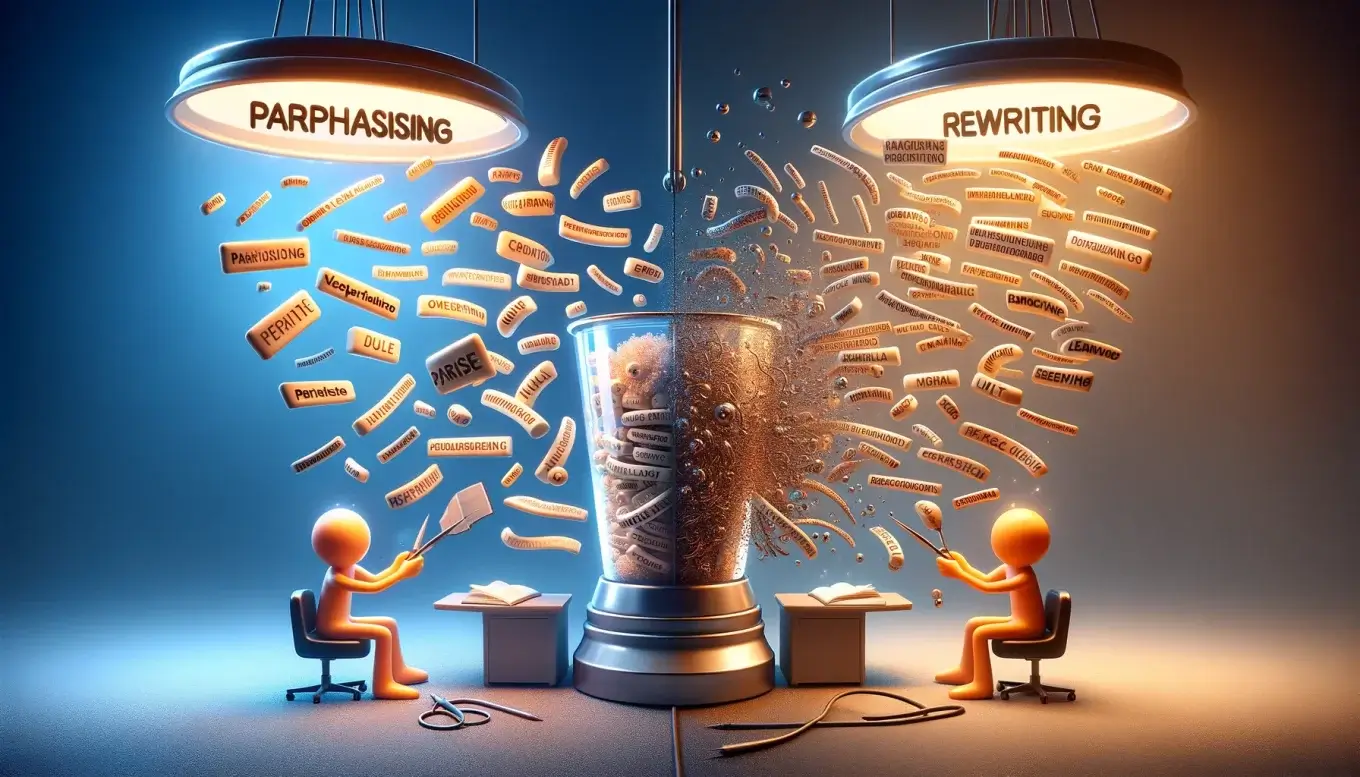If you are a student, an online publisher, and a writer, you might be familiar with the terms paraphrasing and rewriting. Since both help in tackling issues of already written content, people consider them to be the same technique.
But let’s face the fact that these two notions are dissimilar to each other in many ways.
You can often come across situations during student life or professional career in which you have to implement these techniques. So, it is crucial and beneficial for you to comprehend the differences between paraphrasing and rewriting. This will help you effectively apply them when needed.
We have crafted this guide to let you know the most contrasting dissimilarities between paraphrasing and rewriting. However, before delving into knowing differences, let us first know what these terms actually mean.
What is Paraphrasing?
Paraphrasing is a technique in which some particular parts of existing content are restated using similar words while maintaining the original tone and meaning. It is an act of polishing already written content and improving its quality.
Mostly, paraphrasing is used by students and online publishers to level up their written content and make it more engaging.
What is Rewriting?
Rewriting is a revision of the whole text using different words and sentence structures to entirely change the look of the content while preserving the core meaning. It includes reshaping all the text in such a way that it doesn’t resemble the original one.
Sometimes, both writers and students rewrite the entire content either to present the other’s work as their own or to get its alternative version.
Key Differences Between Paraphrasing and Rewriting
By names, you might think that paraphrasing and rewriting are the same terms, but in actuality, they differ in many things. Although both writing techniques are used to enhance pre written content, they have various significant differences.
Neither are they for the same objectives nor do they include the same extent of changes. Along with these, there are many other dissimilarities that you have to see in paraphrasing and rewriting. Here are some of the most prominent things that distinguish them from each other.
- Level of Difficulty
Since both are manual writing methods, it is sure that they will consume your time and effort. However, the extent of the difficulty depends upon the work involved in both of them.
In the case of paraphrasing, you have to perform minor changes such as replacing difficult words with familiar ones, making complex sentences shorter and simpler, etc. That’s why it consumes less dedication and gets completed in less time.
On the other hand, when you have to revise all the content, you need to build new sentence structures, set a new writing tone, carefully write each word, and many more.
Therefore, it is a more challenging task than paraphrasing. However, you can avoid difficulty in manual revision by using an online article rewriter. The rewriter instantly performs all the enhancements in one go.
- Purpose of Use
The paraphrasing and rewriting are used for separate motives. Both cannot be applied at each other’s positions. So, it is crucial to know when to apply these writing methods.
Rewriting is typically employed when you have to perform extensive changes to reform a less attractive and poorly structured article, blog, or assignment and produce a better version. It involves enhancing quality without altering the relevancy and meaning.
Paraphrasing is incorporated to improve the readability and clarity of content by converting complex content parts to easily readable information. However, manual improvements require high focus and can be a tedious task. To ease up, you can also run content through an online rephrasing tool. It automatically identifies readability issues and makes appropriate changes.
- Degree of Creativity
Whether it is an academic assignment or website content, creativity is one of the most essential elements of writing. No doubt you have to be creative in paraphrasing and rewriting, but both ways of writing have their own degrees of creativity.
Whenever you have to paraphrase a sentence, paragraph, or short section of content, you get many ideas to present the same text in a unique way instantly. It takes less creativity to understand the context of content and make changes where needed.
In contrast, it requires more creativity to find new ways to entirely change the perspective of content and give it a fresh look. This is because you have to introduce new insights in rewriting that should not match the previous ones.
Bottom Line
In summary, don’t confuse the term paraphrasing with rewriting because both have major dissimilarities. You should be aware of how they differ from each other if you want to proficiently and productively utilize both writing techniques.
For this purpose, we have mentioned above the things that you should know before either paraphrasing or rewriting content. We hope this guide will help you properly distinguish between these terms that seem to be similar.

